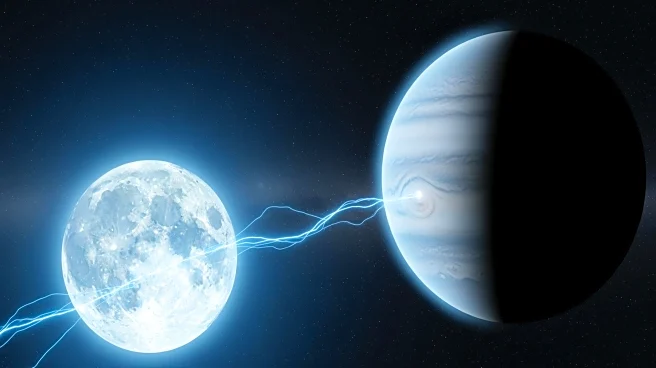What's Happening?
In the aftermath of a prolonged conflict, Hamas is actively working to reestablish its control over Gaza, despite international efforts to stabilize the region. According to reports, Israel currently controls over 58% of Gaza's territory, with significant
areas under Israeli oversight. The United States has proposed designating these areas as 'safe zones' for Gazans. However, Hamas has launched a campaign to reassert its dominance, refusing to disarm as expected under a previous plan. The group has reinstated its internal security forces and appointed new governors, signaling a return to governance. Meanwhile, the international community, including the UN Development Program, is seeking ways to rebuild Gaza, with support from several Arab states, the U.S., and Europe.
Why It's Important?
The situation in Gaza holds significant implications for regional stability and international relations. Hamas's refusal to disarm and its efforts to maintain control could hinder peace efforts and complicate international rebuilding initiatives. The presence of Israeli-controlled 'safe zones' and the potential for continued conflict pose challenges for Gazans seeking stability and normalcy. The international community's involvement, particularly the U.S. and European support for a stabilization force, highlights the geopolitical stakes. The outcome of these efforts could affect the balance of power in the region and influence future peace negotiations.
What's Next?
The future of Gaza remains uncertain as international stakeholders push for a resolution. The U.S. and Europe are advocating for a UN-led stabilization force, with Egypt potentially leading the initiative. However, Hamas's internal campaign against perceived collaborators and its refusal to relinquish control could lead to further internal strife. The reconstruction of Gaza, estimated to cost $70 billion, will require significant international cooperation and oversight to ensure resources are not diverted to military purposes. The success of these efforts will depend on the ability of international actors to navigate the complex political landscape and address the humanitarian needs of Gazans.
Beyond the Headlines
The ongoing situation in Gaza raises ethical and humanitarian concerns, particularly regarding the treatment of civilians and the potential for human rights violations. Hamas's crackdown on alleged collaborators and the use of public executions highlight the harsh realities faced by residents. The international community's response, including potential sanctions or diplomatic pressure, could influence Hamas's actions and the broader peace process. Additionally, the economic disparities within Gaza, exacerbated by the conflict, underscore the need for sustainable development and equitable resource distribution to prevent further instability.
















